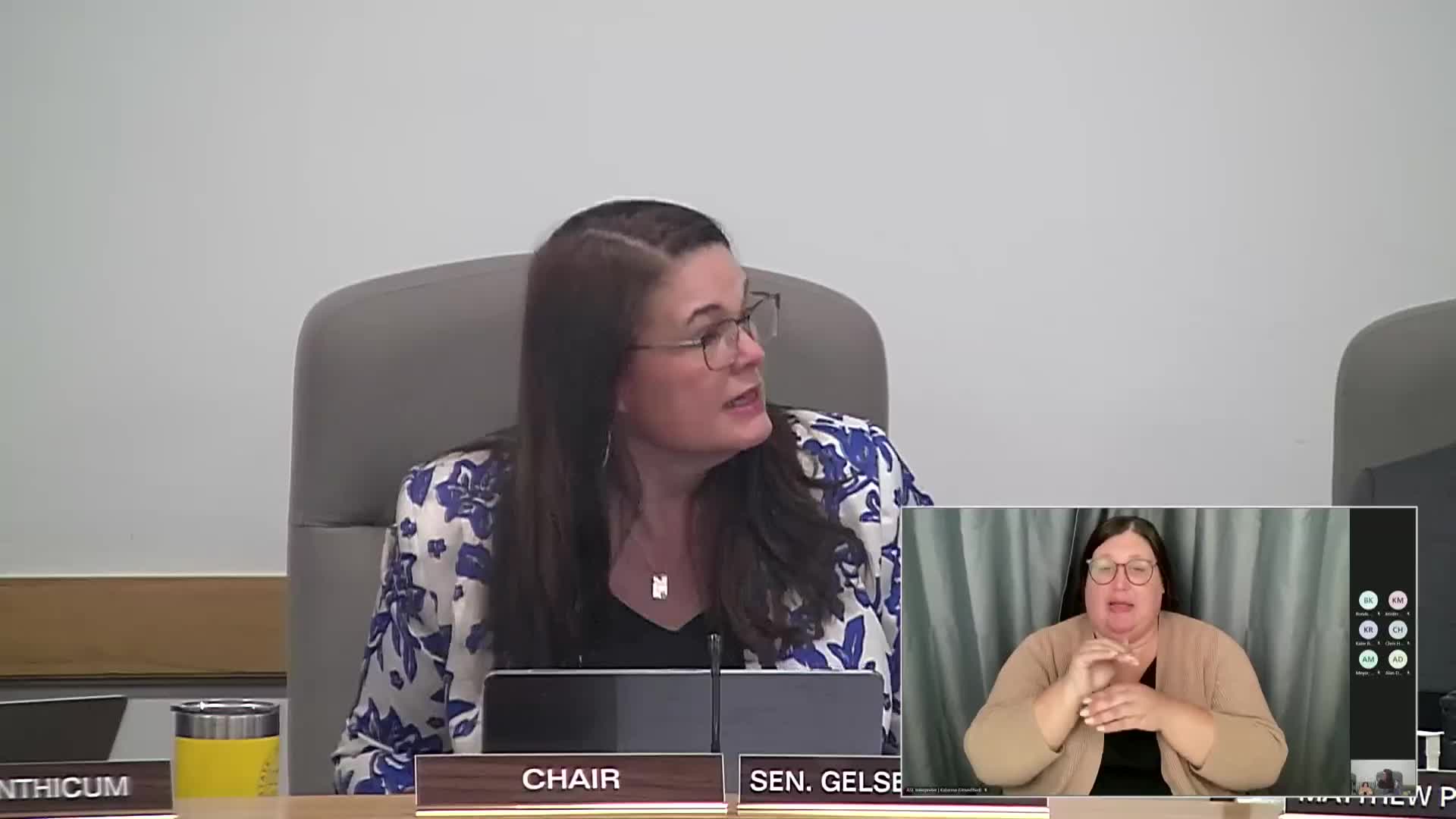Senate committee hears bill to centralize nursing home ownership, quality and violation data online
Get AI-powered insights, summaries, and transcripts
Subscribe
Summary
Senate Bill 34 would require the Oregon Department of Human Services to publish plain-language ownership, violation and quality information about nursing facilities, study an online licensing and reporting portal, and ensure notification when a facility changes ownership.
Senate Bill 34 would direct the Oregon Department of Human Services to make ownership, violation and quality information about nursing facilities readily available online, transition from paper-based reporting to a digital licensure and facility reporting system, and ensure residents, staff and families are notified when a facility changes ownership.
The bill’s sponsor, State Senator Deb Patterson, said the measure responds to increasingly complex ownership structures that can “obscure accountability” and make it hard for families to know who is responsible for care. “When families make the difficult decision to place a loved one in a nursing home, they should be able to access clear, plain-language information about the facility's ownership, track record and any past violations,” Patterson said.
The bill’s supporters included Andrea Meyer, director of government relations for AARP Oregon, who told the committee that federal and state data exist but are scattered and hard for consumers to navigate. “We need to develop a comprehensive method to determine the safety and effectiveness of nursing homes,” Meyer said. Fred Steele, Oregon’s state long-term care ombudsman, said his office regularly fields questions from families and would use clearer ownership data to help prospective residents and caregivers assess options.
Provider groups including the Oregon Health Care Association and LeadingAge Oregon said they support making existing data more accessible but opposed aspects of the dash-1 amendment as drafted. Libby Battlin of the Oregon Health Care Association told the committee that recent Centers for Medicare & Medicaid Services rules already require extensive ownership disclosure for facilities that participate in Medicare and Medicaid, and warned against duplicative reporting requirements that would increase administrative burdens. Kristen Milligan, CEO of LeadingAge Oregon, said about 90 percent of her members are nonprofits that already file IRS Form 990 disclosures and urged focusing on presenting existing data in consumer-friendly ways rather than adding new reporting mandates.
Committee members and witnesses also questioned the bill’s timetable. Senator Pruzanski asked why draft reports were scheduled as late as Dec. 31, 2025, with a final report due August 2026; sponsors and DHS officials said the timeline was intended to allow stakeholder engagement and to complete the work without immediately asking for new state IT funding.
Carissa Neufeld, deputy director for safety and regulatory oversight at the Office of Aging and People with Disabilities (APD) within the Oregon Department of Human Services, told the committee that new federal CMS ownership-transparency regulations (effective Jan. 16, 2024) informed the agency’s learning-collaborative work and that APD regulates 128 nursing facilities in Oregon. She said APD uses ownership data for licensing and complaints but that publicly accessible ownership information is limited and hard for consumers to navigate. Neufeld described the bill as allowing APD to study which additional fields or presentation formats would be most useful for consumers and what resources would be required to implement a public portal.
No final action was taken; the committee heard testimony and closed the public hearing for later work on amendments.
Ending: The committee will consider amendments and further testimony; supporters and providers said they expect to continue negotiating language that avoids duplicative reporting while improving public access to ownership and quality information.
